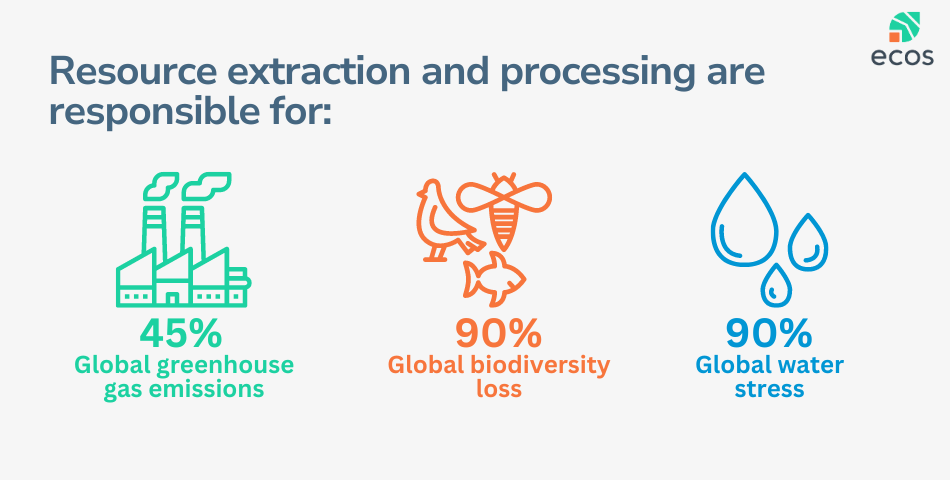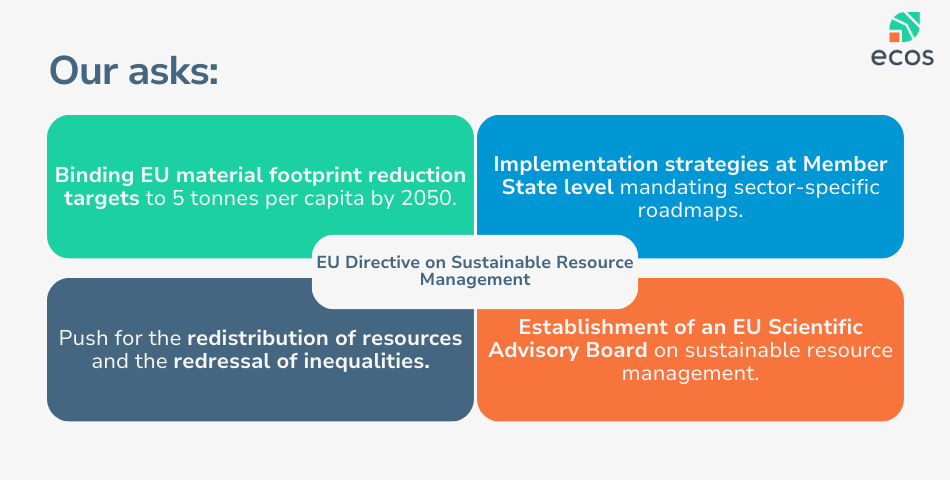Join our call for an EU Directive on Sustainable Resource Management
There is a crucial gap in current EU law. Resource overconsumption is not being addressed, even though it is predicted to continue rising. The need for an EU Directive on Sustainable Resource Management – with science-based and overarching reduction targets for resource use – has never been clearer.
What is the issue?
Resource extraction is among the major contributors to pressing global challenges, including climate change, biodiversity loss, and social injustices. The evidence is clear: 90% of global biodiversity loss and water stress, 50% of global greenhouse gas emissions, and over 30% of air pollution health impacts are caused by resource extraction and processing. The EU – as a major consumer – bears a significant responsibility in mitigating these issues. While efforts have been made to address climate change and biodiversity, there remains a crucial gap in legislation to address the root cause: resource extraction and use.

What can you do?
Together with eight civil society and environmental organisations, we are calling for a new EU Directive on Sustainable Resource Management – and you can join us!
We are looking for support from a diverse range of NGOs, academics, think tanks, trade unions, and progressive industries, to build momentum for binding legislation addressing unsustainable resource extraction, processing, use, production and consumption.
In a dedicated letter, we urge the European Commission to develop a new Directive with science-based and binding material footprint reduction targets that align with planetary boundaries. The Directive should emphasise sector-specific strategies, a just transition, and social justice. More information is available in our white paper.

How to sign on?
Fill in this form by 8 April to be included as a signatory in our communication materials.
If you have any questions, please contact Valeria Botta, Head of Circular Economy & Nature: valeria.botta@ecostandard.org.
Please note that the text is final and already endorsed by a number of organisations and no further changes to the text are possible.


